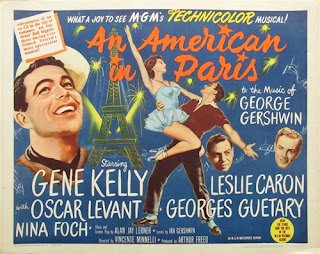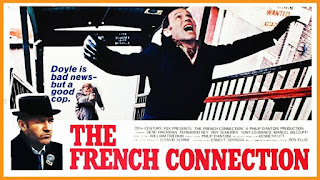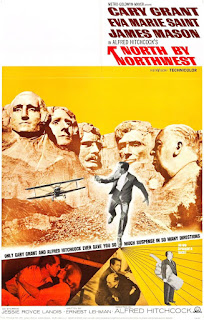by A.J.
January is the time to catch up on all the movies that were released at the very end of the last year to qualify for the Academy Awards. Now that it is February, I've (mostly) caught up. This year, the Academy nominated nine films for Best Picture of 2016, but there were 10 movies from last year that I found exceptionally entertaining.
10. Hell or High Water
Hell or High Water is a modern day western about a
pair of bank robbers and the lawman pursuing them. This movie has great
cinematography of the Texas plains, great performances, and a screenplay that
divides our sympathies between both cops and robbers. It doesn’t reinvent or shake
up the genre, but it doesn’t need to, it’s executed extremely well.
Released in the first half of 2016, The Witch is the story
of an isolated family living in colonial America being menaced by seemingly
supernatural events. I recommended this film a lot during Shocktober at the
video store and wrote about it for 13 Nights of Shocktober 2016.
In New Zealand, a delinquent young boy, Ricky, is sent to
live with a kind woman named Bella, and her husband, Hec, a gruff, grumpy outdoorsman (played by Sam Neill). After Bella dies suddenly, Ricky is scheduled to go back into the state foster system, but he and Hec go on the run and live in the
wilderness while evading the authorities. This is a wonderful, sweet, and
charming movie with a broad, offbeat sense of humor. Written and directed
by Taika Waititi, who co-wrote and directed the hilarious What We Do In the Shadows, it delivers a fun story that is heartwarming without being saccharine.
I wasn’t planning on seeing this Disney animated movie, but
I’m very glad I did. Judy Hopps, voiced by Ginnifer Goodwin, is the first rabbit to be accepted into
the Zootopia police force, but she feels underused, stuck on menial traffic duties. She ends
up teaming up with a fox conman (confox?) voiced by Jason Bateman to solve a
missing persons case that uncovers something more sinister. Zootopia ends up
being a film noir that deals with race and gender issues while being a great buddy cop movie. It is also about a young
woman that is living on her own for the first time in the big city and has to
work 10 times harder to prove everyone’s underestimations of her wrong.
Writer-director John Carney, who brought us Once, one of the
best films of the last decade with equally fantastic music, has created another
non-musical musical set in Ireland and it is an absolute joy. Sing Street is a sincere tribute to 80s
new wave music, a genre much looked down on. We follow Conor, who is dealing
with his parent’s divorce and starting a new school run by a cruel, petty
priest whose discipline is actually bullying. Conor wants to impress the pretty
and mysterious Raphina, so he tells her that he’s in a band and asks her to be in
their music video. When she accepts, he actually has to form a band, write songs, and make a video.
The songs they make are genuinely good and their music videos are amusingly
amateurish, but accurately capture the style of professional videos of the era. This movie never laughs at its characters or
their ambitions. This is a wonderful coming of age film without a
single cynical frame.
We’ve been lucky enough to have had some excellent science
fiction films recently (Interstellar in 2014, and The Martian in 2015 come to mind), and
Arrival is among them. Mysterious alien spacecrafts appear at different
locations all over the world and a renowned linguist, played by Amy Adams, is brought
in by the government to try to communicate with the alien beings. Adams
turns in a great performance (entirely deserving of an Oscar nomination that she did
not receive) that grounds the entire film in genuine emotion even as it moves
into heady sci-fi territory. Even though Arrival does not go out of its way to
simplify or explain itself, it never becomes inaccessible and only becomes more
intriguing and entertaining as the story unfolds.
1. Four-Way Tie
There were four movies I saw last year that I found so completely wonderful and well-made from beginning to end that I couldn't place them in an order. So, here is my four-way tie for the best movie of 2016.
Annette Bening is at the center of this ensemble comedy-drama that is the freshest coming of age film I’ve seen in quite some time.
Bening plays a single mother of a 15-year-old son living in Southern California
in 1979. She isn’t exactly a hippie parent, but she is certainly
nontraditional and open to whatever may be the best way to raise her son. She enlists the help of the motley group of misfits (Greta Gerwig, Elle Fanning, Billy
Crudup) that lives with them. Each helps in their own way to raise Bening’s son and together form
a makeshift family. Each role is well written and well-acted. Director Mike
Mills throws in some stylistic touches that not only evoke the era, but also reflects what
the characters are experiencing. The best thing about 20th Century Women is that the characters in this movie don’t just feel
like people, they feel like people I know.
This is not a traditional, by-the-numbers biopic, recreating
people and events that we are familiar with as a pageant. Jackie is something far more special and affecting. It is an
intimate and emotional glimpse of a woman dealing with tragedy and grief while
the public watches. The assassination of JFK was a
national tragedy, but it was also a personal tragedy for Jacqueline Kennedy and
her family.

While watching Jackie I felt as though this could have been
a traditional biopic; it certainly starts that way. Not long after the
murder of her husband, Jackie agrees to an exclusive interview, but tells
the reporter that this will be her version of the story. However, the
approach director Pablo Larrain takes to tell her story, with flashbacks and close ups and the haunting
score by Mica Levi, makes this an unconventional movie that avoids biopic clichés. Natalie Portman has the difficult task of portraying the enigmatic First Lady with the
unique and distinct voice. Portman more than meets the challenge and is
entirely deserving of her Oscar nomination for Best Actress (and she would have my
vote). She shows us a woman that at all times projected a persona, both
publicly and privately. But more than that, she humanizes a chapter in American
history and captures the personal side of a public story.
To those people that think costume period pieces or films of
Jane Austen books are dull, stuffy, or boring, I suggest they see the
incredibly funny and lively Love & Friendship. Based on the early Jane
Austen novella, Lady Susan, the story
follows the duplicitous Lady Susan (Kate Beckinsale), recently widowed, who
moves in with her in-laws and begins a hunt for a wealthy husband. Her teenage daughter, after running away from her boarding school, joins her mother at the
country estate. This complicates Lady Susan’s plans. Despite her scheming and
plotting, Lady Susan remains a likeable character. Beckinsale is
able to play Lady Susan as though she unintentionally has good intentions.

Writer-director Whit Stillman understands the text, the
subtext, the period, the characters, and the humor of the source material
resulting in a Jane Austen adaptation that feels fresh and offbeat. In short,
he is a perfect match for Austen. This film seems to have made critics realize
that Stillman’s previous “comedies of manners” are actually modern day Jane
Austen stories. I must admit I’m not usually a fan of Kate Beckinsale, mostly because
of her choice of films (more Underworld
sequels?), but with the right material and the right director (Stillman—see The Last Days of Disco for further
proof) she can be an outstanding actress indeed. It may come as a surprise to
some, but, yes, Jane Austen is very funny.
If The Nice Guys feels like a throwback to the kind of action-comedies that Hollywood seems to have
stopped making, it is likely because it was written and directed by Shane Black
who wrote Lethal Weapon, The Last Boy Scout, and The Long Kiss Goodnight. He’s written
and directed the best Marvel movie so far, Iron Man 3, and the underseen but exceptional
Kiss Kiss Bang Bang. Now he brings us
a thoroughly funny and excellently crafted modern film noir. The setting is Southern
California in the 1970s and we meet Russell Crowe as a tough guy for hire seeking to improve himself. He reluctantly teams up with Ryan Gosling, a private
detective that isn’t quite inept, but is certainly comical, to find a missing
young woman. The case, of course, uncovers something far more sinister and complex.

Crowe and Gosling are wonderful as mismatched partners and
have great chemistry together. Each turns in their most dynamic
performance in years. Crowe excels at playing a tough guy that is actually,
well, a nice guy. Gosling shows off his comedic talents, both verbal and
physical (one of his best moments is his reaction to finding an open bar). They
run into gangsters, shootouts, conspiracy theories and more. The action scenes
are well done and pretty violent. The danger these characters find themselves
in is real—innocent bystanders are killed by stray bullets—but this is not a
dark or cynical movie. The
Nice Guys evokes the 1970s while avoiding clichés like packing the soundtrack
with hit songs from the era, and the costumes and hairstyles are believable on the
cast members. This is a smart movie with a sharp sense of humor that I can't recommend enough.


































